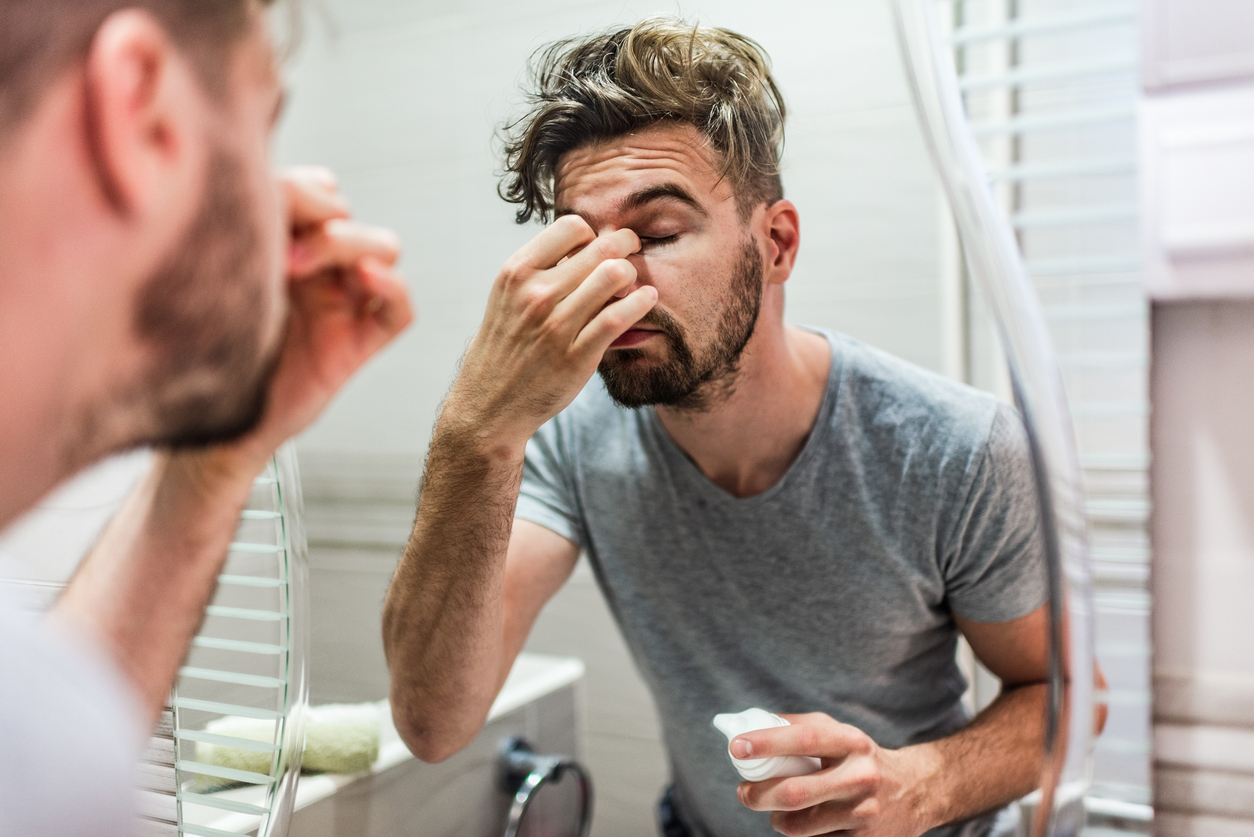That nice and tart margarita or glass or red wine might hit the spot when you’re looking to blow off some steam after a long day of work. However, while it might taste delicious and feel cathartic in the moment, it may not be doing your body too many favors in regards to health and fitness. And if that post-workday drink turns into a regular happy hour, those drinks can add up and could lead to more serious consequences down the road.
So, take a pause in between those sips and think, “What really is happening as I drink this?” for a moment. Luckily, we got some answers for you from dietitians, so you don’t need to sit and ponder for too long. Here’s what happens in your body when you drink alcohol, depending on the type, as well.
First off, how much can we drink a day?
“It’s recommended to cap alcohol intake at 1 drink for women and 2 drinks for men when it’s consumed, and ideally not on a daily basis,” says Beth Stark, RDN, LDN a PA-based nutrition communications consultant and recipe developer.
It’s also important to remember what actually counts as a “drink,” because that massive margarita you order at the beach bar or a single pour of wine at night is likely over the proper serving size, as suggested in this recommendation.
A serving according to this guidance might be 12-ounce glass of regular beer, a 5-ounce glass of wine or a 1.5-ounce shot of liquor. “Chances are, this is quite a bit less than most people drink at a time, especially when pouring their own drinks,” says Stark.
What happens to your body?
When you drink booze, you don’t digest it. It goes right to your bloodstream and affects each part of your body. “It slows down the chemical pathways in your brain and affects your reflexes, memory and your mood, where your body treats alcohol like a toxin that has to be neutralized and eliminated,” explains Lyssie Lakatos, RDN, CDN, CFT.
Unfortunately, other body processes, including carbohydrate, protein and fat metabolism then shut down as your body works to get rid of the alcohol. And this also changes your body’s mechanism for energy sourcing as fuel. “Alcohol is used as fuel before anything else so excess carbs (glucose) and fats (lipids) are stored as body fat,” says Lakatos.
So, if you’re having a sweet drink or a beer or wine, for example, where there are generally more carbs and sugars, those will be stored as fat as you imbibe. And if you’re noshing on a burger and fries—those too.
While this might be in more dire situations where you’re drinking too heavily and may vomit, getting sick from alcohol can affect your stomach interior. “Alcohol irritates your stomach lining and increases digestive juices, and when the acid from your stomach and the alcohol build up, it can cause you to throw up,” says Lakatos.
When you continue to do this over time, you can get ulcers. Plus, high stomach juices may make your appetite go away, so it can be hard to get the nutrients you need. Of course, not vomiting can prevent this! So, maintain moderation and responsibility when drinking to avoid going overboard.
Alcohol also inhibits the hormone in the brain that tells the kidneys not to make more urine, so that’s why you find yourself rushing to the bathroom after breaking the seal. “If you keep having to go to the bathroom, it can leave you dehydrated and long term this puts a strain on the kidneys and the alcohol’s toxic effect can wear the kidneys down,” says Lakatos. Plus, you might get a bit puffier and thirsty, and have dry mouth while drinking—not fun.

It can affect your following day, too!
It’s also not great for your snoozing, “You may doze off after drinking, but it disrupts your good REM sleep for the night, so you won’t feel refreshed,” says Lakatos.
And it can carry over into the next day in terms of effects. “After a night of drinking—your judgment, memory and reflexes are impaired, and your inhibitions are lower,” says Lakatos.
Alcohol also makes you hungrier, too, and you may wake up with a growling belly, even if you indulged when drinking the night before. You might have more cravings and fewer appetite suppression cues. So, you may find you’re reaching for sweeter, carbier foods rather than rich proteins and good fats.
What booze is best?
“If sticking to these recs, there shouldn’t need to be a big focus on the type of drink you’re choosing, i.e. drink what you enjoy without worry over calories, added sugars, etc.; however, when drinking more than these recommendations, consider that wine, light beer or pilsners, lagers and ales (vs. stouts, IPAs or some porter beers) beer styles, and seltzers are among the lower calorie alcoholic beverage options,” Stark says.
For exact calorie amounts, do your research before drinking. Mixed (margarita) or blended drinks (strawberry daiquiri) are often among the highest in calories, as well as added sugars, thanks to the mixers used to make them. So, going with straight liquor or low-calorie mixers, as well as a dry wine, might be your best option in terms of weight management and perhaps avoiding an awful sugar hangover.
Either way—keep your boozing in moderation for optimal health and wellness, as well as better sleep, weight management, appetite regulation and performance during your workouts!

